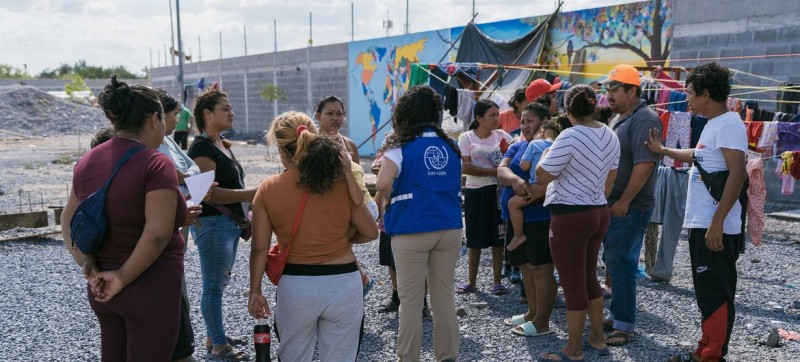© IOM Mexico/Alejandro Cartagena Displaced Venezuelans shelter in Reynosa, a border city in the northern part of the state of Tamaulipas, in Mexico
Taking aim at the expected rise in so-called “expedited removals” from the United States, Mr. Türk also criticised the intention to use the COVID pandemic-related Title 42 public health order even more than today.
Tweet URL
Fast-track expulsion
The move will permit the “fast-track expulsion to Mexico” of 30,000 Venezuelans, Haitians, Cubans and Nicaraguans each month, the UN rights chief maintained.
He explained that Title 42 has already been used by US immigration officials 2.5 million times at the southern border, to expel people to Mexico or their home country, without assessing what risks they faced as a result of being returned.
The High Commissioner welcomed the extension of the US so-called “humanitarian parole” programme to include nationals of Cuba, Haiti and Nicaragua – in addition to Venezuelans.
Asylum and protection
But he insisted that the measure “should not come at the expense of fundamental human rights, including the right to seek asylum and the right to an individual assessment of protection needs”.
His call follows on from the UN refugee agency’s (UNHCR) call last Friday for the administration to think again, and meet international human rights standards.
Mr. Türk stressed that seeking asylum “is a human right, no matter a person’s origin, immigration status, nor how they arrived at an international border.”
“These measures appear to be at variance with the prohibition of collective expulsion and the principle of non-refoulement,” the OHCHR chief said.
Parole’s no replacement
He added that limiting humanitarian parole for some, “cannot be a replacement for upholding the rights of all to seek protection of their human rights”.
Those most in need of asylum, and those in vulnerable situations are unlikely to meet the restrictive requirements to be granted humanitarian parole, including having a financial sponsor in the US, he noted.
“We hear a great deal of talk about migration crises, but in reality, it is those migrating who often are the ones truly in crisis”, said the High Commissioner.
“Rather than vilifying them and stripping them of long-recognized rights, we should be seeking to govern migration humanely and safely with full respect for the human rights of every individual.”




Comments are closed.